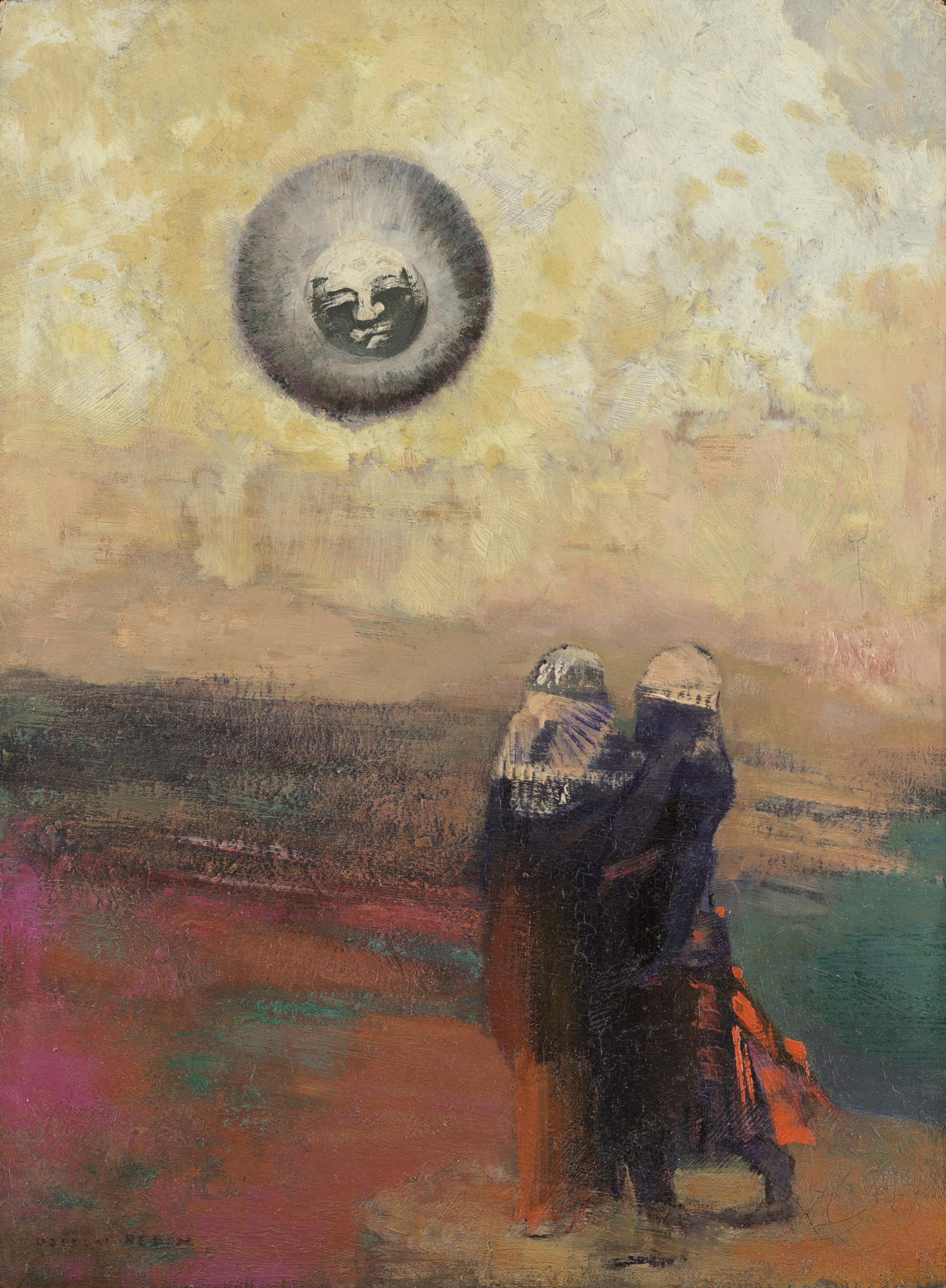A NEGLIGIBLE EXPERIMENT (4)
By:
December 19, 2023

J.D. Beresford’s pre-apocalyptic story “A Negligible Experiment,” which seems to have first appeared in his 1921 collection Signs & Wonders, is an allegory born of religious doubt. HiLoBooks is pleased to serialize it here for HILOBROW’s readers.
ALL INSTALLMENTS: 1 | 2 | 3 | 4.
“It isn’t as if the same thing had not happened before,” he continued after a pause. “We have seen it — seen the effects at least. When some temporary star blazed up in the sky, we inferred some such collision as this. It may very well be that from a planet in some other system men may catch sight of this tiny blaze of ours — and wonder. It will be relatively a very small affair. Some of those we’ve seen must have been many thousand times greater.
“But the point is that this experiment of making men upon the Earth is now proved to be negligible. In a few hours it will be finished, wiped out. And whether that termination is the result of accident or design makes no difference to the effect. This is an answer to all our philosophies and religions. Either we are the creatures of some chance evolutionary process, or we are an experiment that has failed.”
I looked at him, and noted with a curious stir of unplaceable recollection that his head was too large.
“It is certain that we shall go off like an exploded shell?” I asked.
“I don’t fancy that many of us will live to see that,” he replied. “Most of us will be drowned in the next tide. It will come in a wall of water many thousand feet high. Don’t you notice a feeling of lightness in your body? The attraction of this great stranger is beginning to drag at us. On the other side of the Earth men are feeling an intolerable heaviness. And our speed increases. We have been drawn out of our orbit. We are rushing now to greet the stranger with a kiss of fire. Our circling about the sun is done for ever. We and the stranger are leaping together like two bubbles in a cup.”
I believe some hours passed before I spoke again. A sense of imminence had grown upon me in the meantime. I was aware of the guards that were fetching me to execution.
“After all,” I cried, “there may still be such a thing as an immortal soul. Though every physical expression is smashed at one blow, that does not prove….”
“There is no such thing as proof possible,” my companion interrupted. “But don’t you know in your heart that it’s no good?”
“No good. It’s no good.” I woke with a start at the repetition of that statement.
My young modeller was rolling a great ball of plasticine, and before I could stop him he had thrown it with deadly accuracy at his effigy of man.
“He wouldn’t come right,” he explained, picked up the shapeless mass of clay, and tossed it carelessly into a corner of the workshop.
“Oh, but you shouldn’t have done that,” I said, with the incurable didacticism of the pedagogue.
RADIUM AGE PROTO-SF: “Radium Age” is Josh Glenn’s name for the nascent sf genre’s c. 1900–1935 era, a period which saw the discovery of radioactivity, i.e., the revelation that matter itself is constantly in movement — a fitting metaphor for the first decades of the 20th century, during which old scientific, religious, political, and social certainties were shattered. More info here.
SERIALIZED BY HILOBOOKS: James Parker’s Cocky the Fox | Annalee Newitz’s “The Great Oxygen Race” | Matthew Battles’s “Imago” | & many more original and reissued novels and stories.
